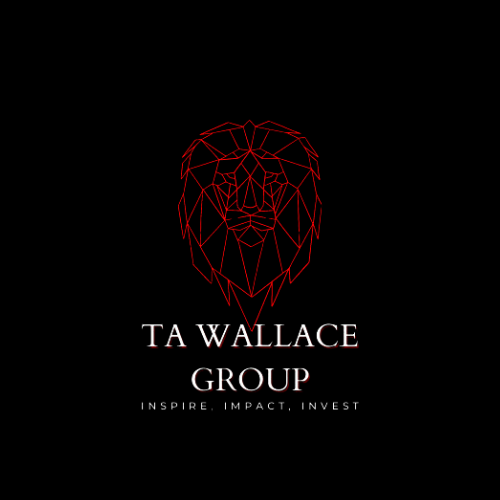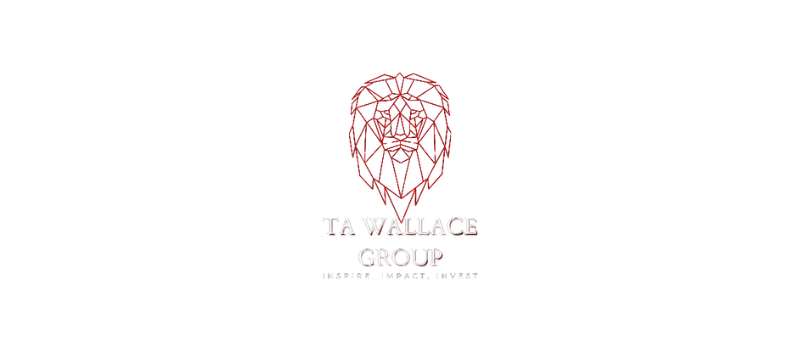Top 10 Keynote Speakers to Elevate Your Event

Choosing the right keynote speaker can make or break your event. A powerful keynote sets the tone, sparks enthusiasm, and ensures attendees leave inspired. Whether you’re organizing a corporate conference, nonprofit seminar, or educational gathering, finding the perfect speaker is vital. But with so many options available, how do you ensure you’re making the right choice? That’s where this expertly curated list of the top 10 keynote speakers comes in. This guide doesn’t just name names; it takes you behind the stage to explore what sets these speakers apart. From understanding their unique styles to the impact they can have on audiences, we’ll show you how the right keynote speaker can transform your event into a memorable success. Plus, we’ll provide tips on how to align your speaker choice with event goals, audience needs, and industry trends. Why a Great Keynote Speaker Matters Keynote speakers aren’t just standard contributors; they’re the emotional and intellectual anchors of your event. According to research, 75% of attendees say a dynamic keynote speaker enhances the value of their experience. Why? Because they: Keynote speakers can deliver motivational content, industry insights, or tailored solutions that speak to the hearts and minds of your audience. But where do you start looking? 10 Keynote Speakers to Elevate Your Event Here’s your ultimate list of trailblazing keynote speakers who are guaranteed to take your event to the next level: 1. Tabari Wallace – Transformative Leadership Coach With his motto “progress, not perfection,” Tabari Wallace inspires audiences to turn challenges into triumphs. An award-winning educator and leadership advocate, Tabari focuses on inclusive excellence, making him ideal for motivators wanting to bridge gaps in equity and leadership. His warm delivery style makes even complex subjects feel accessible, leaving audiences empowered. Area of Expertise: Leadership, motivation, education.Impact: Inspires principals, educators, and corporate leaders to empower teams. 2. Mel Robbins – Life-Changing Strategies for Action Mel Robbins’ science-backed “5 Second Rule” is a game-changer. Known for her high-energy talks, Robbins lights up rooms by providing actionable advice on overcoming self-doubt and procrastination. She’s a hit for attendees needing personal and professional growth. Area of Expertise: Confidence, productivity, mindset.Impact: Motivates individuals to take bold, immediate action. 3. Simon Sinek – Inspiring Purposeful Leadership Simon Sinek is a household name in corporate circles. With his famous “Start With Why” TED Talk that garnered millions of views, Simon shares powerful insights into how purpose-driven leadership can transform organizations. Area of Expertise: Leadership, team building, organizational success.Impact: Strengthens strategic clarity and boosts team morale. 4. Amy Cuddy – Harnessing the Science of Presence Body language specialist Amy Cuddy brings psychology to the stage with compelling insights on how presence and posture shape our confidence and ability to stay grounded. Perfect for audiences aiming to boost executive presence. Area of Expertise: Psychology, confidence, behavioral insights.Impact: Enhances audience self-awareness and interpersonal effectiveness. 5. Tony Robbins – Unstoppable Motivation No list is complete without Tony Robbins. His electric, high-energy talks ignite audiences, pushing them to break limitations and live with purpose. Robbins is an iconic choice for mega-events seeking maximum amplification of passion and perseverance. Area of Expertise: Success mindset, motivation, performance.Impact: Sparks deep personal transformation across all audience types. 6. Brené Brown – Courageous Leadership Best known for her powerful talks on vulnerability, shame, and empathy, Brené Brown brings a mix of humor and relatability. She resonates with groups looking to foster compassion in the workplace. Area of Expertise: Emotional intelligence, communication, self-compassion.Impact: Creates stronger emotional bonds among attendees. 7. Tabitha Brown – Creating Inclusive Cultures Tabitha Brown, a beacon of positivity with her viral inspirational videos, speaks about authenticity and the power of inclusion. Perfect for events celebrating diversity and kindness. Area of Expertise: Purpose, inclusivity, emotional well-being.Impact: Promotes harmony and shared understanding in diverse audiences. 8. Guy Kawasaki – The Art of Innovation Guy Kawasaki embodies innovation. With years at Apple under his belt, his keynotes inspire startups and established companies alike to think disruptively. Area of Expertise: Marketing, innovation, tech.Impact: Encourages teams to adapt, evolve, and innovate. 9. Sarah Blakely – Entrepreneurial Brilliance Spanx founder Sarah Blakely brings wit and wisdom as she shares life lessons about what it takes to pioneer an industry. Inspiring entrepreneurs and innovators, she’s a relatable storyteller. Area of Expertise: Entrepreneurship, resilience, leadership.Impact: Empowers risk-takers and dreamers alike. 10. Shonda Rhimes – Storytelling that Connects The visionary behind “Grey’s Anatomy” and “Scandal,” Shonda Rhimes offers unmatched insights into the power of storytelling in captivating any audience. Area of Expertise: Creativity, communication, breaking barriers.Impact: Sparks creativity and connection across diverse groups. Tips to Choose the Right Speaker 1. Define the Event’s Purpose Before starting your search, clarify the event goals: Selecting a keynote speaker aligned with your goals ensures the theme resonates deeply with attendees. 2. Understand Your Audience Analyze your audience demographics: 3. Explore Speaker Styles Speakers vary in style—some are storytellers, others data-driven strategists. Consider which delivery style will keep your audience engaged: 4. Budget Wisely Be upfront about your financial constraints. Top-tier speakers often charge premium rates, but other emerging voices can offer remarkable value for a fraction of the price. 5. Leverage Reviews and Demos Watch videos and read testimonials to understand the speaker’s style and content quality. A first-hand look eliminates guesswork. The Value These Speakers Bring Closing the Deal with Your Speaker Getting your desired keynote speaker requires early action: Final Thoughts The right keynote speaker is more than just an eloquent individual—they are catalysts for inspiration, learning, and change. From industry pioneers like Simon Sinek to transformational voices like Tabari Wallace, this list has covered personalities that will reshape your events and audiences. Whether you’re planning a corporate gathering, nonprofit conference, or creative expo, elevate your event by choosing speakers who align with your mission. Call-to-Action Need help booking the perfect speaker for your next big event? Explore our resources on selecting keynote speakers, or contact us directly for personalized recommendations. Make your event unforgettable—start planning today!
Life Coaching Mastery: Expert Strategies for Personal Development

Welcome to “Life Coaching Mastery: Expert Strategies for Personal Development,” a comprehensive guide for individuals seeking to transform their personal and professional lives through effective life coaching. Life coaching is a professional service that empowers clients to achieve their life goals, enhance self-awareness, and foster personal growth through self-discovery and personal vision development. This article explores the essential aspects of life coaching, including key benefits such as improved accountability and emotional intelligence, various coaching approaches, and methodologies like transformational coaching and cognitive-behavioral techniques. It further outlines the qualities of successful life coaches, providing insights into the coaching skills and characteristics needed to excel, such as effective listening and communication skills. For aspiring life coaches, we detail the steps to start a career, from obtaining coaching certifications to establishing a successful practice. Additionally, we offer tips for building a strong client base and recommend valuable tools for personal effectiveness and resources to enhance coaching effectiveness. Dive into this guide to discover how life coaching can be a catalyst for personal development and professional success, and learn how to leverage these expert strategies and coaching methodologies in your journey towards life mastery and success coaching. What is Life Coaching? Life coaching is a professional service where coaches assist individuals in achieving personal and professional goals by providing guidance, motivation techniques, and support systems for mindset transformation. Life coaching involves guidance, goal setting, and support to enhance personal development. Life coaching focuses on identifying obstacles, setting actionable goals, and fostering accountability. Defining the Practice Life coaching is a practice that involves guiding individuals to achieve personal and professional goals through structured conversations and coaching techniques. Life coaches help clients enhance self-awareness, overcome obstacles, and align actions with values. The Benefits of Life Coaching Life coaching benefits include achieving personal goals, enhancing accountability, improving overall well-being, and fostering life balance through wellness coaching and mindfulness practices. Life coaching helps individuals explore values, clarify objectives, and develop actionable steps. Life coaching creates a supportive environment that fosters resilience and motivation. How it Can Help with Personal Development Life coaching helps personal development by providing tools for self-improvement, emotional resilience, and life skills acquisition through strategic planning and attitudinal change. Life coaching encourages emotional intelligence, allowing individuals to navigate feelings and understand others’ perspectives. Life coaching promotes a growth mindset, helping individuals embrace challenges and view failures as learning experiences. Life coaching improves goal-setting, time management, decision-making skills, and enhances leadership development through visualization and feedback mechanisms. Different Approaches to Life Coaching Life coaching approaches vary to meet diverse client needs and include holistic approaches, empowerment strategies, and action-oriented coaching: Holistic coaching Empowerment coaching Goal-focused coaching Holistic coaching views clients as whole beings, addressing emotional, mental, and physical aspects, and integrating wellness strategies for a balanced life. Empowerment coaching focuses on building confidence and self-awareness to help clients achieve personal growth. Goal-focused coaching emphasizes setting and achieving specific, actionable objectives, utilizing performance enhancement and strengths assessment. Comparing Techniques and Methodologies Comparing techniques and methodologies in life coaching involves examining transformational coaching, cognitive-behavioral methods, and solution-focused techniques. Transformational coaching addresses immediate challenges and promotes personal growth and deeper self-awareness. Cognitive-behavioral methods focus on changing negative thought patterns to alter behavior. Solution-focused techniques aim to find practical solutions for current issues. Integrating these methodologies can enhance the coaching experience and meet various client needs. Qualities of a Successful Life Coach Qualities of a successful life coach include self-confidence, active listening, effective communication, empathy, and problem-solving skills. Successful life coaches build trust and motivate clients by clearly understanding their goals and challenges. Key Skills and Characteristics Effective life coaches possess key skills and characteristics including emotional intelligence, resilience, adaptability, and relationship-building abilities necessary for successful coaching relationships. Emotional intelligence helps life coaches understand and empathize with clients’ feelings. Resilience enables life coaches to handle setbacks and teach clients to view challenges as learning opportunities, fostering personal accountability and adaptability. Strong relationship-building skills foster trust and openness, encouraging clients to share challenges. How to Become a Life Coach To become a life coach, complete a certified life coaching program, choose a coaching niche such as career coaching or relationship coaching, and obtain necessary credentials to guide clients through life transitions. Develop skills by practicing coaching techniques, utilizing neuro-linguistic programming, and receiving feedback from peers or mentors to refine coaching models and frameworks. Establish your life coaching business by creating a business plan, setting up legal and financial structures, and marketing your services to attract clients. Steps to Start Your Career in Life Coaching To start your career in life coaching, follow these steps: Obtain a life coaching certification from an accredited program. Seek mentorship from experienced coaches for guidance and support. Learn and master coaching tools and techniques. Develop a niche to target specific client needs. Build an online presence and network to reach potential clients. Starting a career in life coaching requires certification, mentorship, specialization, and networking. Establishing a Successful Coaching Practice Establishing a successful coaching practice involves creating a business plan, defining a niche, and developing a client acquisition strategy. Effective client engagement is achieved through targeted marketing, personalized coaching programs, strategic planning, and consistent communication that builds client motivation and trust. A clear understanding of coaching dynamics includes staying informed on industry trends, seeking professional development, and adhering to ethical standards. Tips for Building a Strong Client Base Building a strong client base involves leveraging social media, hosting coaching workshops, and networking to increase visibility and engagement while utilizing feedback loops and success principles. Creating a follow-up system fosters trust and loyalty among clients. Adapting marketing strategies to client needs strengthens relationships and enhances business growth. Tools and Resources for Life Coaches Life coaches use tools such as scheduling software, communication platforms, goal-setting templates, and visualization techniques to enhance client management and track progress effectively. Resources for life coaches include online courses, certification programs, professional networks for continuous learning, and coaching dialogue practices that support skill development and client engagement. Recommended Books, Courses, and Software Recommended

